2022





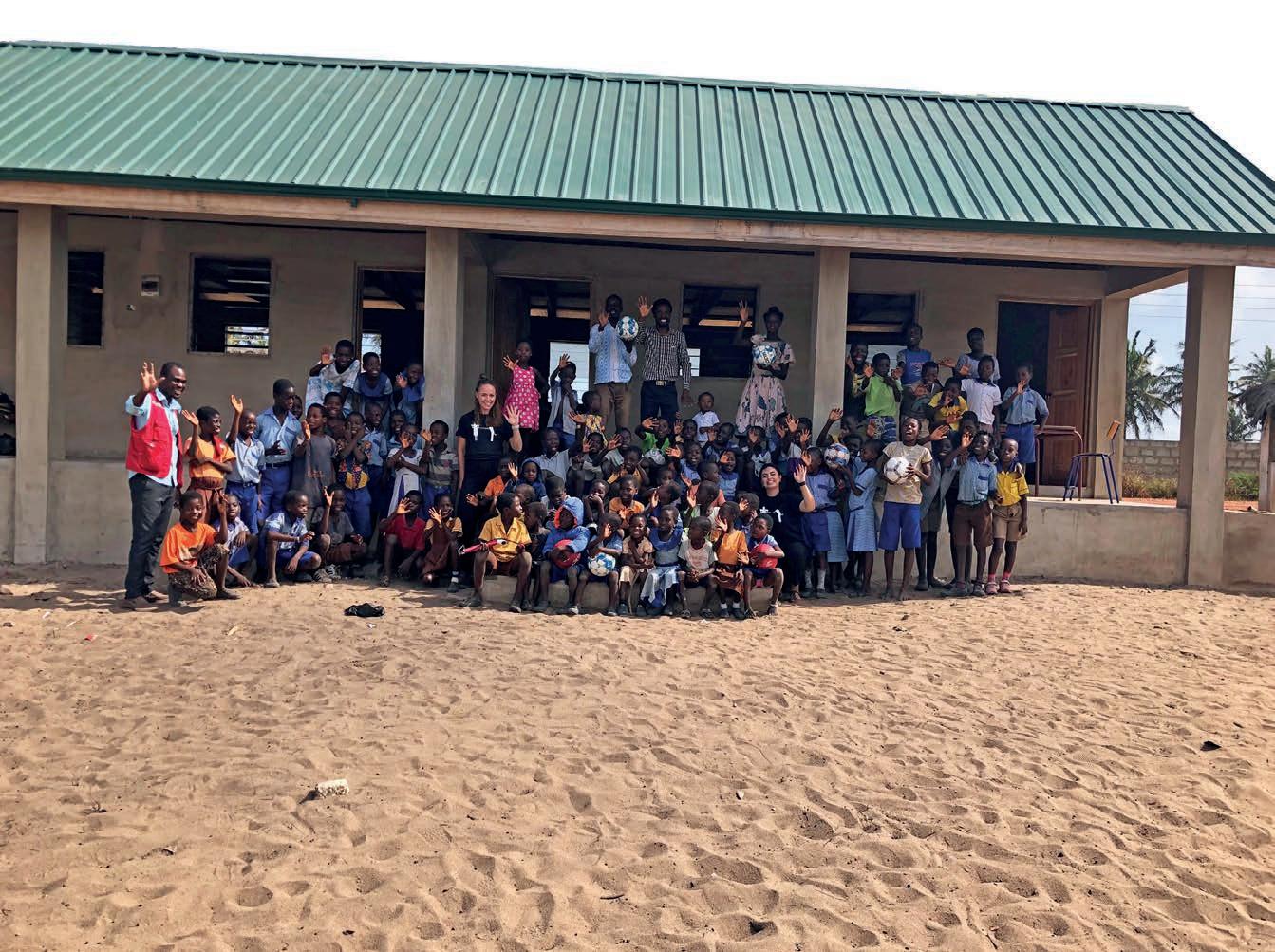
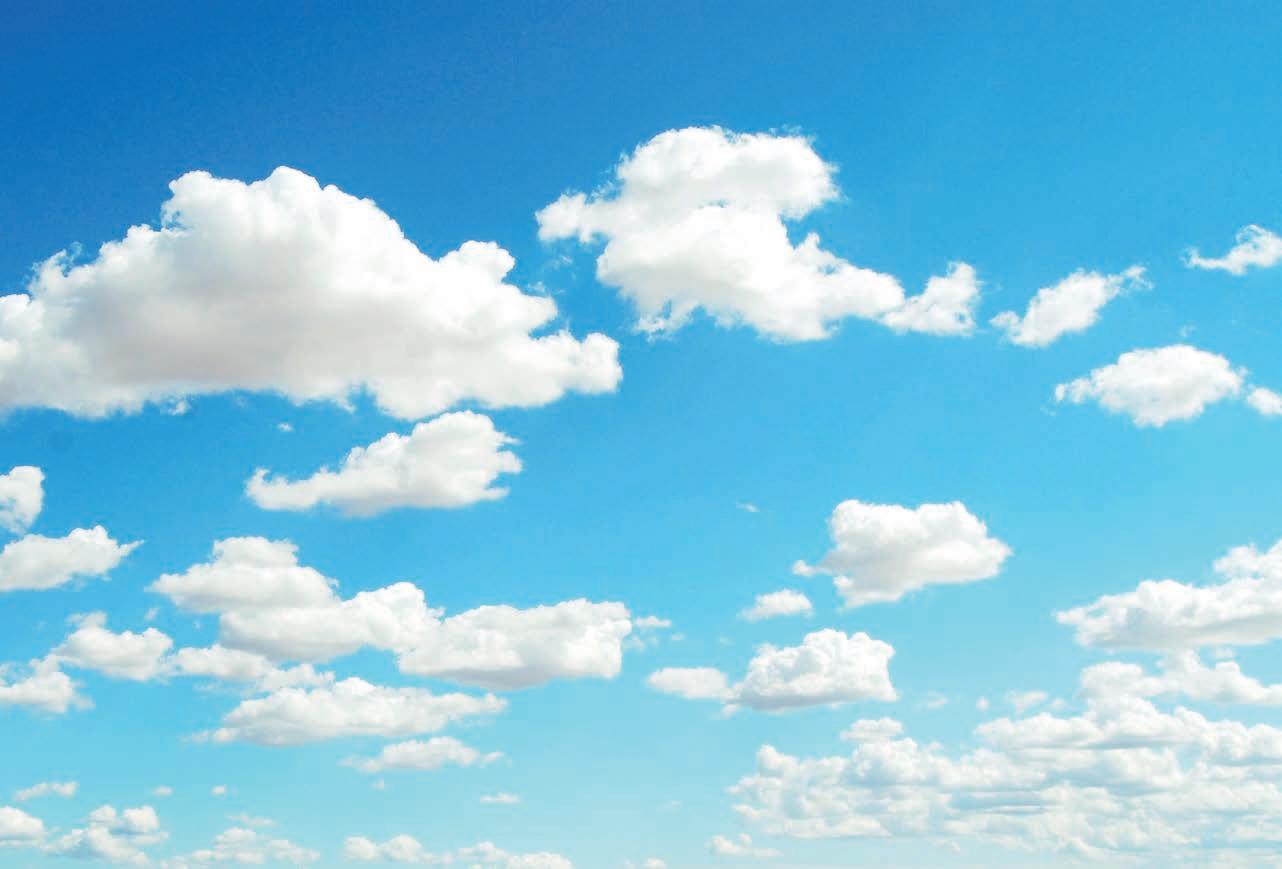



Climate-related initiatives to enhance climate resilience and robustness at community level are significantly increased in Engineers Without Borders - Denmark’s (EWB-DK) activities, and not only infrastructure but also capacity building of local communities are essential for EWB-DK’s projects. This was demonstrated in 2022 when EWB-DK initiated a significant climate and water sector program in the Kenema district of Sierra Leone, aimed at making 50 villages resistant to climate change and securing future water access amid climate change. The program builds on previous experiences and strong interactions with our skilled local partners and local stakeholders, with whom we have made excellent progress.
In 2022, EWB-DK focused on developing its project portfolio, leading to several smaller pilot initiatives, including a partner meeting in Freetown, the development of methods to estimate energy needs in villages, the use of drones to support Sierra Leone’s new land law, and the exploration of potential partnerships with EWB-Zimbabwe in partnership with EWB-Norway. Thanks to generous donations and grants, EWB-DK also initiated a business hub project based on sustainable energy in a Sierra Leonean remote village, began constructing a village school for 350 pupils, transporting, and installing a donated Danish waterworks (Aagerup waterworks – donated by FORS) and building a health post in the village of Baoma.
EWB-DK only operates in stable countries, and our volunteers’ safety is a top priority. Therefore, we ensure comprehensive volunteer preparation before they enter the field and have strengthened our security procedures before, during, and after missions.
In 2022, EWB-DK completed its extensive CISU-funded engagement program, focusing on enhancing our onboarding processes for new volunteers, strengthening voluntary commitment, and intensifying coopera-
tion with universities and companies in Denmark.


For Engineers Without BordersDenmark the year 2019 has been a year of growth. We have gained access to more resources from donors and members. Ahead of us is the task of determining how best to maintain and utilise these extra resources in the longer run.
Number of active projects has increased by 38% during the 2019. From 26 active projects in 2018 to 36 in 2019. This was possible due to an increase in funding for the projects.
Nearly 40,000 people have seen a positive impact from our efforts. From access to clean water, health, energy, from climate risk adaptation, and from other improvements to the livelihood of those most in need.
EWB-DK is attracting significant interest from Danish companies and educational institutions interested in collaboration and joining us in striving to achieve the global Sustainable Development Goals and to leave no one behind, hence working for the poorest in the world. In 2022, we welcomed AFRY, Artelia (former MOE), and Emendo as new members, resulting in a considerable increase in the pool of skill and capacity we can rely on in our projects. We also hosted two engineering students and a project manager from a partner organisation in Sierra Leone during the month-long Innovation Pilot course at the Technical University of Denmark (DTU) during February. It was indeed very positive to see the overwhelming interest from Danish companies in the water sector in hosting meetings and exchange on the challenges the water sectors face in a development context, and the visitor’s program was full during their stay here. In particular, I thank DTU and SDU for their engagement and hosting of interesting exchanges during our partner visit.
sought collaborations with universities and businesses. We share the vision and the framework of the UN Sustainable Development Goals (SDGs). We also share a common access to a technical knowledge-base that can improve the lives of people in the developing world.
Partnerships with Danish companies is a significant way to facilitate joint efforts to support the SDGs for the benefit of the less fortunate around the world - the communities that never will be able to hire a consulting engineer to advise on technical livelihood improvements.
Numerous donors appreciate our work; in 2023, EWB-DK initiated the year with significant working capital of around DKK 6 million from public funds and DKK 3 million from private sources to start new activities. We received substantial funds from the GLOBUS funding facility to engage the Danish engineering sector students and companies in our activities. The program will send interns to our partnerships abroad for the next two years and forward relevant technical donations to Sierra Leone for a water plant, the health post, and a STEM school (intermediate level) for young girls. Furthermore, we received donated waterworks (Bremdal waterworks - donated by Struer forsyning) to improve access to clean water. Moreover, we expect to prioritise new projects and partnerships in our partner country, Zimbabwe. The Danish NGO environment is challenged from a shrinking pool of private and public funds to finance the international development initiatives. Hence EWBDK intends to seek alternative funding opportunities from international donors to accomplish our goals.
The children and youngsters were well-represented in our activities throughout the year. In Sierra Leone, we have established a strong collaboration with a technical school for young people with disabilities and renovated rural maternity clinics. In Zimbabwe, we secured funding for the renovation of four schools and a daily meal for the students.
Two hundred new members joined Engineers Without Borders - Denmark in 2019. Our members are the core of our organisation. It is their contributions through hard work and donations that allow us to do what we do. In 2019 volunteers contributed 23,500 hours of highly skilled work. At the end of the year, we had more than 1,200 members
In 2019 we have increasingly
EWB-DK aspires to reach 80,000 people annually with our initiatives and recruit 300 active volunteers, fuelled by the continuing interest in volunteering. Therefore, I am very proud to see that in 2022 we reached 93,073 people with our activities and contributed to making their lives more healthy and safer. However, looking back at 2022, we acknowledged that we still must strive for a more agile and streamlined project conceptualisation and launch process. We still need to streamline the initiation of new initiatives and optimise the process. Hence, and as a result EWB-DK added an additional project advisor capacity in the secretariat to work with our project teams and advise volunteers with enhanced project development, and management approaches.
We see a strong commitment to the SDGs among all our corporate members. Therefore, we are proud to welcome EKJ, ARUP, and FORS as new corporate members.
In many of the locations, where we are present, the main part of our work is focused on basic public service provision as in water and electricity mainly because the state
Finally, I express my gratitude to our dedicated members, committed volunteers, partners from abroad, Danish NGOs, companies, and universities with whom we collaborate on our projects. Together, we advance the global sustainable goals to uplift the world’s poorest communities, and we are proud of our collective accomplishments.
is absent. and strong involvement and in local In that respect, corporate Vandværker rich experience governance pation in Another in 2019 is by EU to red when we believe sation with our volunteers postings our partners. the work to benefit come. Within started a towards 2025. We input provided volunteers strategy 2020. In 2020 ed strong teers and vate members. hard to partnerships es we work strong potential joint action the specific
Bent Michael Nielsen Chairman of the board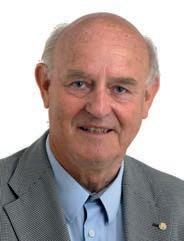
»Volunteers contributed 23,500 hours of highly skilled work«
Engineers without Borders - Denmark (EWB-DK) is a technical-humanitarian organisation founded in 2001. We base our work on highly skilled volunteers making their time, skills, and experience available. We have more than 1,575 members, of which 180 are active volunteers engaging in projects, developing international partnerships, creating sustainable solutions, and improving living conditions in some of the poorest communities in the world.
EWB-DK has a small secretariat, which supports and provides a solid platform for the volunteers. Moreover, we work closely with universities and companies to share knowledge and

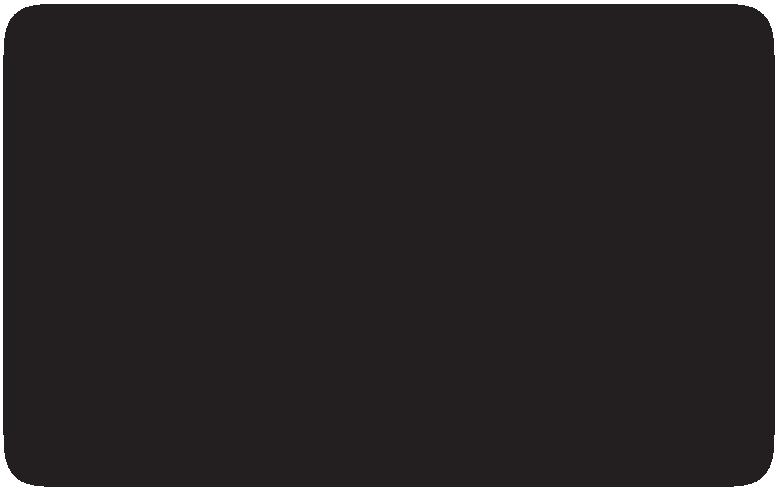
create anchorage with our partners. Abroad we work with local and international development organisations to improve the living conditions of vulnerable people in developing countries, and the UN Sustainable Development Goals (SDGs) are our guiding principles.

Our members and active volunteers cover many professional skills and experiences. We transform our technical expertise into relevant, sustainable, and lasting locally anchored solutions with a tangible and immediate effect. Together with our partners, we build schools, health clinics, provide clean water and better sanitary facilities, establish solar-based power
and waste management systems and much more.
Moreover, we support the establishment of sustainable and resilient communities through capacity building and the active involvement of the local population. We believe that the world’s poor have and can develop the needed and relevant skills to play a decisive role in developing their societies. Local communities supported by EWB-DK and partners must identify problems and solutions by themselves, irrespective of whether the poverty is social or economic or due to other forms of marginalisation. Help to self-help is at the core of our mission.
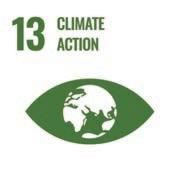
In the more than 20 years that EWB-DK has existed, the organisation has witnessed enhanced and a significant climate change impact in poor communities where we operate.
Many countries often lack a comprehensive State-driven response to secure the needed infrastructure to become more resilient and mitigate the impact of devasting floods, landslides, erosion, drought, deforestation, heatwaves, etc. Countless communities have little or no experience preparing for and responding to events such as irregular rainfall causing floods or droughts. The combination of their exposure to climate-related risks and their lack of organisation, experience and skills makes them extremely vulnerable. Therefore, EWB-DK has a particular focus on preventive risk reduction, resilience, and adaptability in several of our projects.
forts were related to major floodings in 2009-2010 in the northern part of Pakistan was flooded. EWB-DK’s disaster preparedness team assisted in building shelters in the affected areas, and the local population was equipped to withstand future floods by community-driven development efforts to reduce vulnerability and promote disaster-resilient communities.
After a devastating mudslide followed by several flash landslides in Sierra Leone’s capital Freetown in 2017, EWB-DK and the local partners initiated an effort to ensure access to clean drinking water in the affected area. This also laid the foundation to focus on building climate adaptive capacity to reduce vulnerability to future natural hazards. Since then, EWB-DK has switched to more targeted and cross cutting climate-related efforts and is engaged in both rural and urban/slum areas.
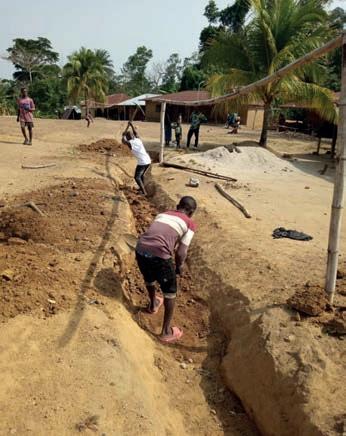
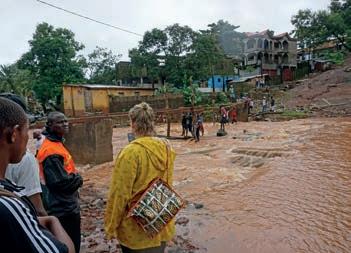
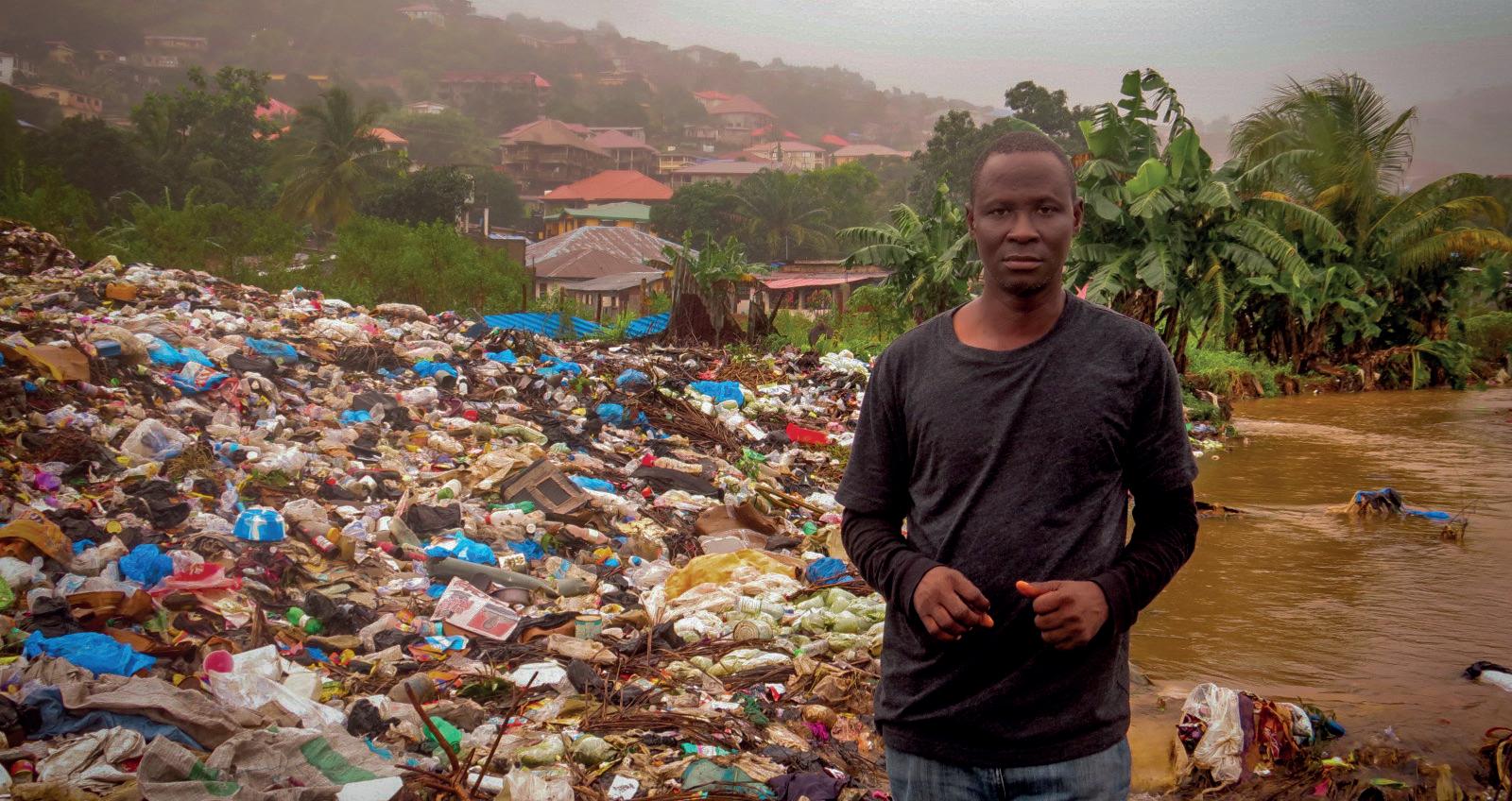
with climate resilience committees and empowerment with a strong focus on awareness-raising and skills training. The interventions target the communities and aim to work strategically with the local authorities and communities to strengthen engagement, skills and secure participation and action.
Strengthening communities’ resilience to climate change EWB-DK’s initial climate-related ef-
Today, EWB-DK and our local partners are engaging communities to combat the climate change effects through citizens’ engagement and from a bottom-up approach working
Through our technical capability, EWB-DK identifies a significant and highly relevant contribution in supporting the development of more climate-robust communities. The
contribution consists of technical advice on essential adaptation measures, which is an important crosscutting element in our strategy and our contribution to fulfilling the UN’s Sustainable Development Goals. Consequently, EWB-DK works actively to strengthen the resilience and adaptability to climate-related disasters, build knowledge and capacity to counter climate change and strengthen the capacity for effective climate change management in smaller local communities.
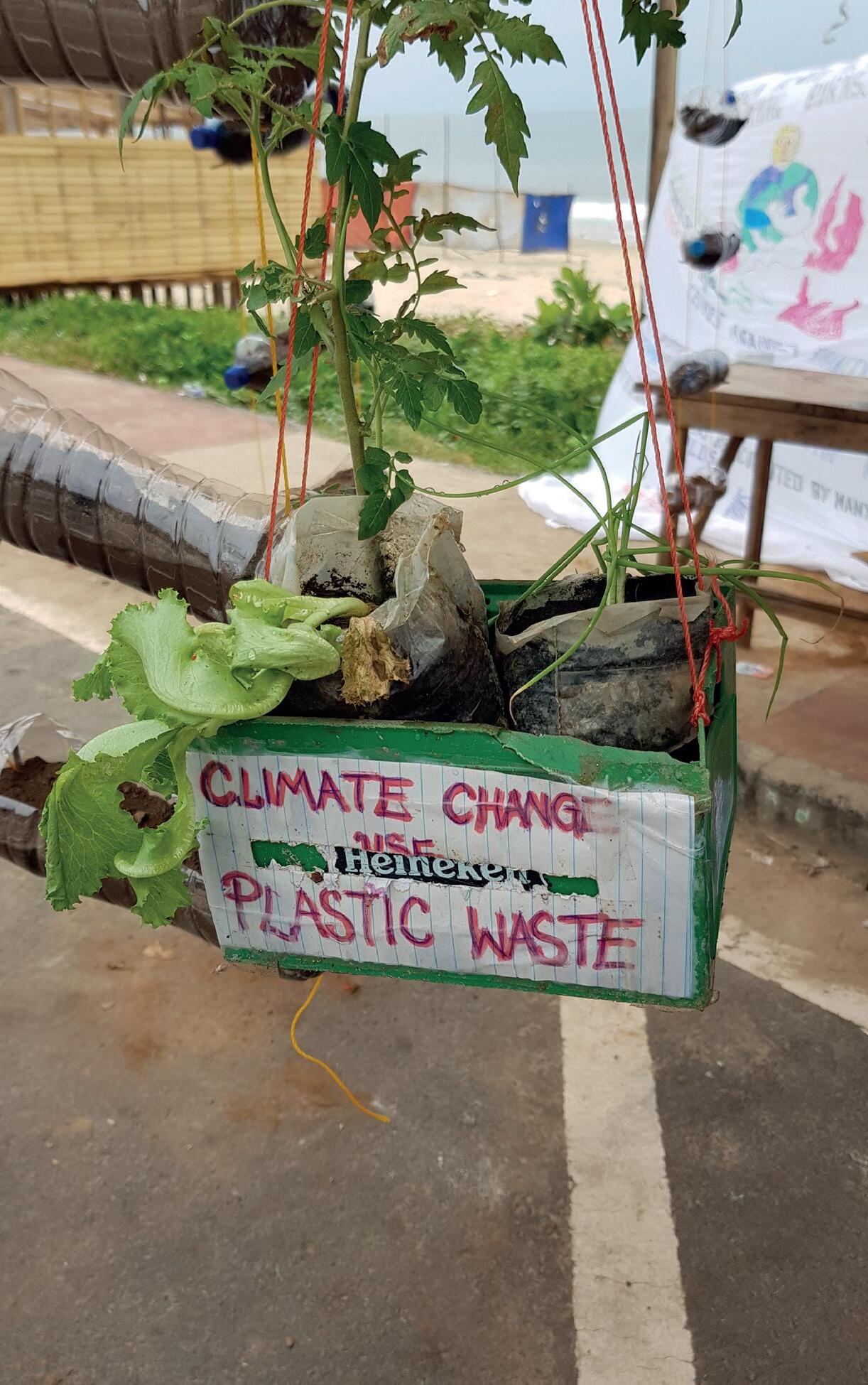
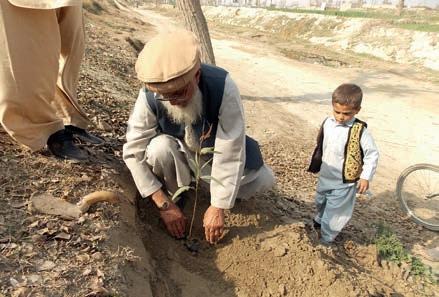
By implementing community-driven participatory activities and interventions (in rural and urban areas), community resilience ambassadors raise awareness and lead the change. Community engagement is centred around participation, promoting inclusive project involvement, awareness raising and ownership. It’s essential to involve the community members from the initial phases through stakeholder consultations and later by establishing climate resilience committees and climate community groups. It is an important focus to ensure ownership and get community members’ engagement from the beginning.
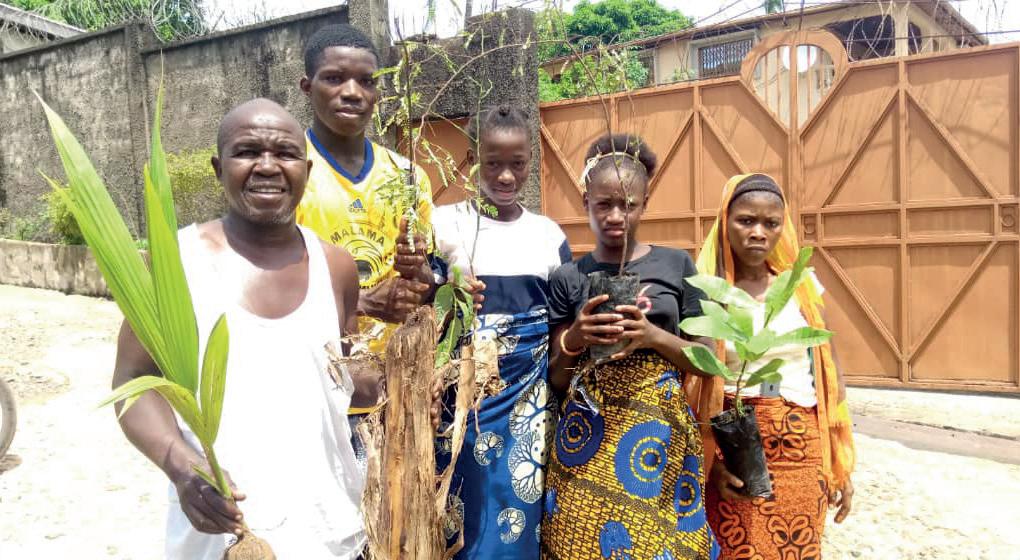
EWB-DK has been involved in climate change adaptation activities in the slum settlements Pottor and Kaningo in the capital of Freetown, Sierra Leone, for the past years. By implementing community-driven participatory activities and interventions, community resilience ambassadors raise awareness and lead the change. EWB-DK has continued to raise funds to expand the focustackling the climate change impacts from a more holistic perspective.
Mitigating the heat through tree planting and working with white paint on facades, interlinking activities and food security interventions have all greened the communities. Community members have therefore planted fruit trees, established tree nurseries, created urban vertical gardens on household levels, and painted light-coloured roofing on local schools. Activities that all aim to improve the livelihood opportunities of our communities.
Equally important, training and skills transfer have been carried out to grow our partners to fully engage in the local conversations on climate change, climate mitigation, and adaptation. Likewise, our partner, Skill Pool, has grown and changed status from being a community-based organisation (CBO) to a registered
NGO - Well done. Again, collaboration and knowledge-sharing seminars and guidelines of best practice and lessons learnt have been shared with the Freetown city council and NGO SEND-SL.
Partners: World Hope International and Skill Pool
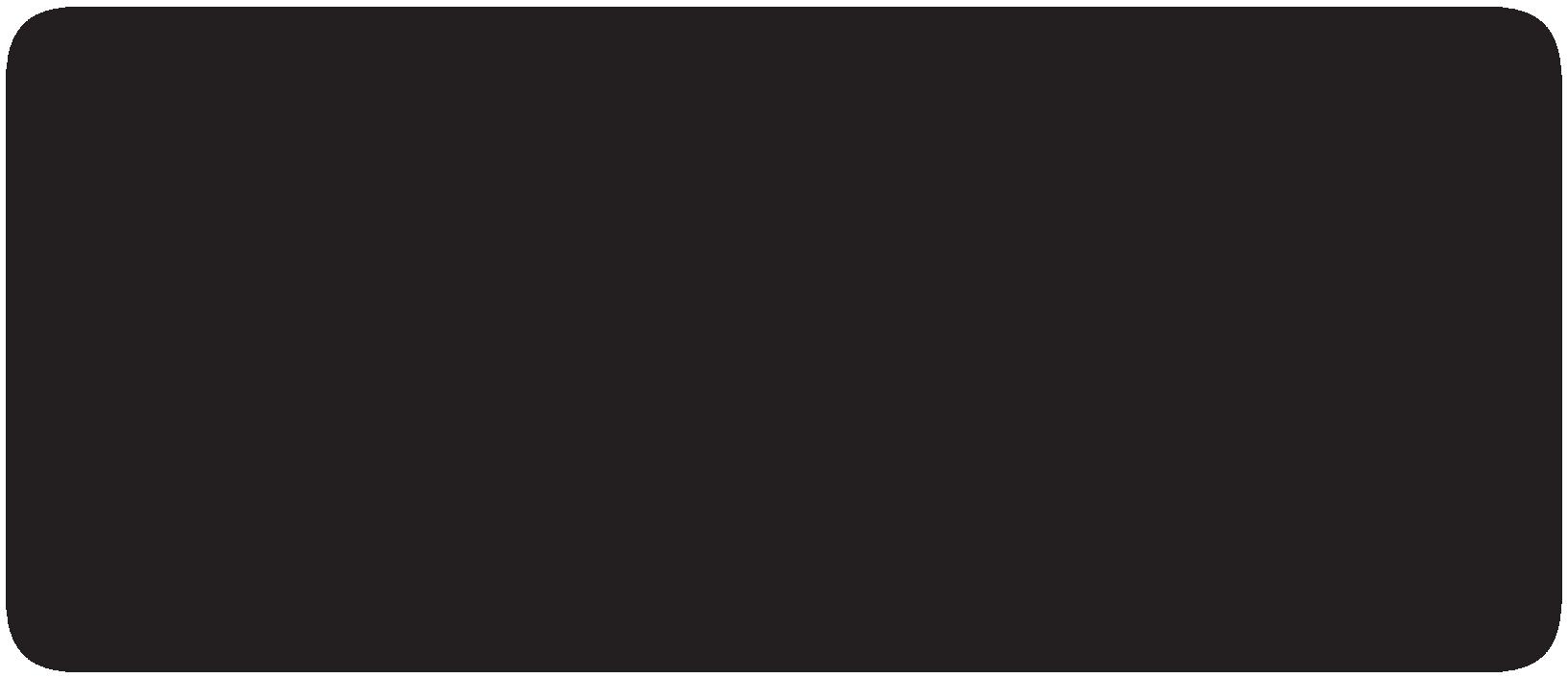

CISU, Ramboll Foundation, various private donations
Positive Impacted 5,000 persons
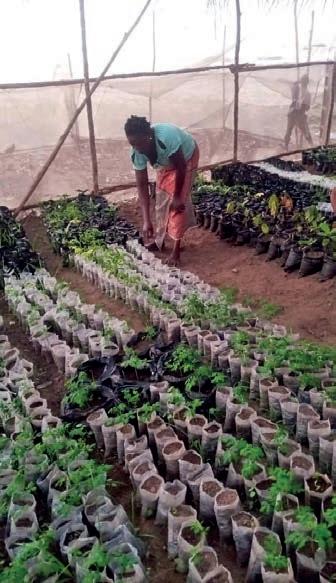

After reading the job posting for EWB-DK’s internship in Sierra Leone, I knew that this was how I would spend my intern semester. I was based in Kenema, Sierra Leone, implementing a climate resilience and WASH project with EWB-DK and the local partners. Getting the opportunity to work across cultures and with something that greatly interested me, I knew it would be a once-in-a-lifetime opportunity.
I was quickly integrated into the local project team at SEND-SL, whose passion for humanitarian work can only rub off on you. Working with a different culture has taught me a lot about communication and the importance of mutual understanding, while also allowing me to improve my technical knowledge of local infrastructure, which is also applicable to my future work in Denmark.
For anyone interested in humanitarian work who is looking for an adventure where they will form great friendships and do rewarding work while strengthening their profile, an internship at EWB-DK is for you.
Martin Kolding is studying for a master’s degree in construction and infrastructure at DTU and did an internship in Sierra Leone for four months.
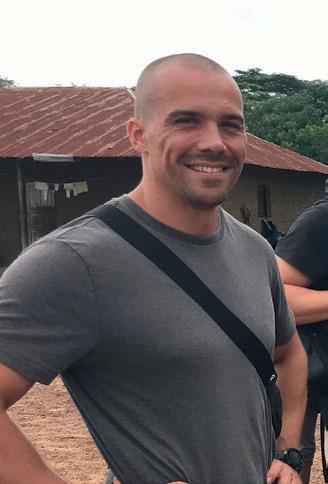
Kenema, Sierra Leone
Water, health, livelihood, and climate change are closely linked. In close collaboration with our partners SEND-SL and WHI-SL, EWB-DK continues to strengthen the population of Kenema district by engaging 50 rural villages in Sierra Leone in activities to mitigate climate change and, in particular, to safeguard water supply and infrastructure through capacity building in climate resilience initiatives. The activities will strengthen the villages’ capacity to withstand the annually recurring and progressive floods because of climate change.
Initially, in 2022 EWB-DK and partners collected data and carried out participatory climate risk assessment analyses in 10 rural communities. Subsequently, the method was applied in additional 40 communities
with a review of the WASH infrastructures carried out in relation to climate robustness and future adaptation measures. The collected data has been presented to and discussed with the villages and the district stakeholders – NGOs and gov. institutions. In 2022, and with the local population at community level work started on building canals for draining the flooding water to safe places in the villages, and not destroying their buildings and equipment to mitigate climate change impacts.
Through participatory assessment of climate effects and incident reporting from the community level and analysis, the selected communities and the Kenema WASH Coordination committee have now increased awareness of the local effects of climate change and its im-
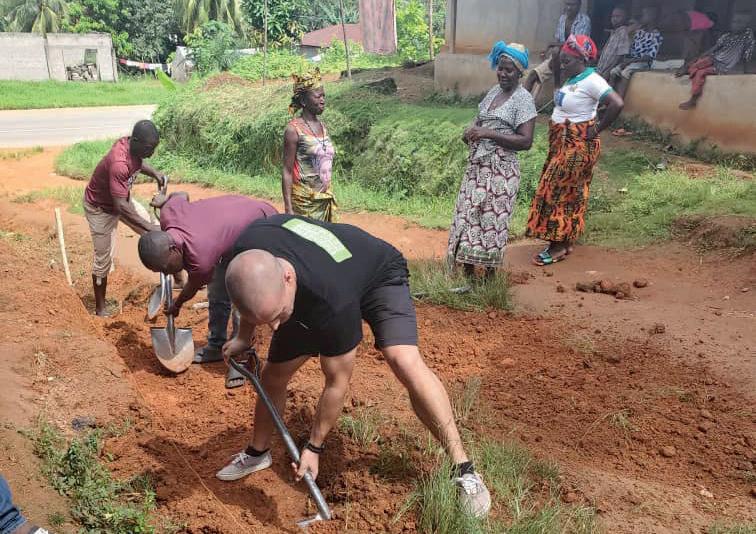
pact on water and sanitation infrastructure. Their active engagement in participatory community-based climate risk assessment processes has enhanced their practical knowledge, thus triggering communities’ active engagement in adaptation and mitigation measures. And the selected vulnerable communities are actively engaged in implementing low-cost climate-robust WASH infrastructures to mitigate climate change impacts.
To assist our partners with the activities, EWB-DK has had an intern in Kenema for four months in autumn 2022.

Partner: SEND-SL and World Hope International SL (WHI-SL)

Doner: CISU
Positive impacted 53,000 persons
APPLYING MY TECHNICAL KNOWLEDGE ON COMMUNITY CLIMATE ACTIONS AND WATER SUPPLY
Being able to help others by using my life experience means a lot to me, and it is a pleasure to volunteer at EWB-DK. It’s not just an expression to make a difference. It’s a way of life. In 2022 I spent 14 days in Kenema in Sierra Leone to assist with measures to reduce climate change. It was a great experience to be out in the villages, work with EWB-DKs partners SEND-SL and WHI, and meet with the machine manufacturer, Finic, in Freetown.
I see it as a great advantage that Danish companies support the great work that EWB-DK does in collaboration through state-of-the-art knowledge and technical expertise. I highly appreciate that my workplace, DIS, has given me the opportunity to get involved in EWB-DK’s projects. I am involved in the Climate Project in Kenema and the Plastic Collection Project in Freetown and look forward to continuing my voluntary involvement in 2023.
Arne Palsbirk, Senior Electrical Engineer at DIS and member of EWBDK’s board
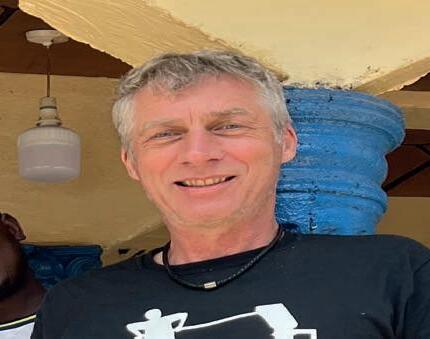

Access to water, sanitation, and hygiene (WASH) is a fundamental human right. At the same time, managing and distributing water resources are crucial for economic development, the fight against poverty, and gen-
der equality. EWB-DK’s WASH projects provide access to clean water and orderly sanitary conditions for the world’s poor. Disease control is a central theme, including health education and health committees to maintain information on the impor-
tance of good hygiene for the local population. With these measures, the projects contribute directly to SDG 6 to ensure that everyone has access to water and sanitation sustainably.
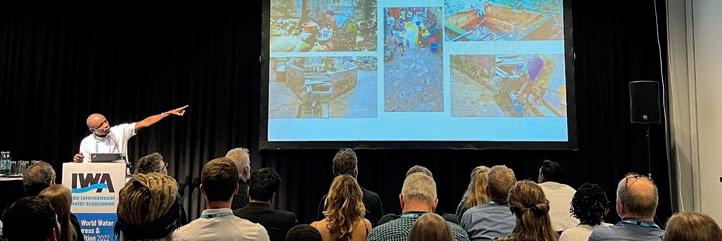
Denmark
In close cooperation with UN Habitat Programme, the NGO Slum Dwellers International (SDI) and International Water Association (IWA), EWBDK hosted a workshop on Sanitation in Urban Informal Settlements as part of the program of the IWA World Water Congress & Exhibition (IWA WWCE2022) in Copenhagen in September 2022. The problems with poor sanitation in urban areas were set in perspective by UN statistics and practical examples from Freetown, Sierra Leone. Also, stateof-the-art knowledge on technical and managerial solutions was presented and discussed. The workshop was a great success, attended by about 50 participants from 16 countries representing universities, institutions, utilities, companies, and NGOs.
During the workshop, it became clear that bridging and disseminating existing knowledge is crucial in accelerating improvements to living conditions in urban informal settlements around the world. Thus, a Summary Report was prepared focusing on the provision of links to existing knowledge on the sustainable implementation of improved sanitation in urban informal settlements. It is the hope of the organisers that the widespread dissemination of this Summary
Report via UN-Habitat, Slum Dwellers
International, IWA Specialist Groups and other relevant networks may be of help to the end-users. EWB-DK harvested many and valuable insights and knowledge which will make our interventions and projects even stronger in the future.
Read the Summary report here: iug.dk/wash
Partner: SDI and IWA
Donor: CISU
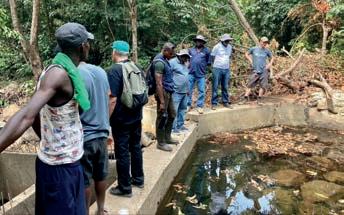
Freetown, Sierra Leone
In 2021 EWB-DK was approached by corporate member FORS to explore the possibility of donating a well-functioning but decommissioned small water plant to EWB-DK’s projects on water and sanitation. The system was deemed relevant, as there is a great need for access to clean drinking water in Sierra Leone, and the project is in line with EWB-DKs long-standing engagement in the country on securing access to clean water.
The water plant was subsequently disassembled and shipped by container to Sierra Leone. In the spring,
EWB-DK was on a scoping mission with the local partners to identify the site where the components could support a sustainable water supply development. Furthermore, the mission focused on identifying the specific and most relevant population to benefit from the project (three possible sites), for example, poor, children, and women. After thorough inspections at the selected locations, it has been decided that the waterworks will be built in Grafton, a former refugee camp outside Freetown. EWBDK has previously been involved in a water kiosk project. The waterworks
installation is expected to begin in spring 2023.
Partners: World Hope International SL and Water4Ever
Donor: Ramboll Foundation
Positive impacted 5,000 persons

The lack of access to health service in slums and rural areas are enormous in poor countries. Especially women and children suffer under these circumstances as many women die in childbirth, and infant mortality is one of the highest in the world. Many health clinics do not have access to water, electricity, and protective equipment, making it difficult to fight diseases and save lives. In close cooperation with our partners,
EWB-DK builds health clinics and works to ensure that the health systems are equipped with relevant and basic services such as clean water and energy. We align all the interventions closely with the national health response plan. The involvements combined early action and lifesaving interventions and have thus supported the local health service through improved hygiene, health facilities, secure medical service and referral combined with awareness-raising on preventive measures.
EWB-DK has good experience in assisting other Danish NGOs with technical knowledge and experience. In 2022, EWB-DK assisted the Danish NGO “Masanga DK”, which supports Masanga Hospital in central Sierra Leone, with two different projects.
Disposing of used hospital waste has long been a major challenge at the hospital. EWB DK’s support to the hospital has considered in improving the hygiene facilities by constructing an incinerator station, three waste pits, and a sewerage system on the hospital compound
as the installation of a washing machine and dryer. A wish the hospital has had for several years, as they previously had difficulty getting rid of hospital waste properly and washed all hospital items in a cold hand wash, including surgical gowns, surgical drapes etc. So there has been a great need for these materials to be better cleaned and disposed of.
In the second phase, EWB-DK assisted with renovating four staff housing quarters, which have been abandoned since the civil war 2030 years back and will house part

of the hospital’s employees in the future. EWB-DK has inspected the Staff Houses’ interim conditions and supervised the renovation of the buildings. Unfortunately, an extensive fire in July 2022 hampered the work’s progress, but the damage was thereafter properly repaired by the local subcontractor.
The structures have in November 2022 been completed, handed over and are fully functional.
Partner: Masanga DK
Donor: Ramboll Foundation
Positive impacted 40 persons
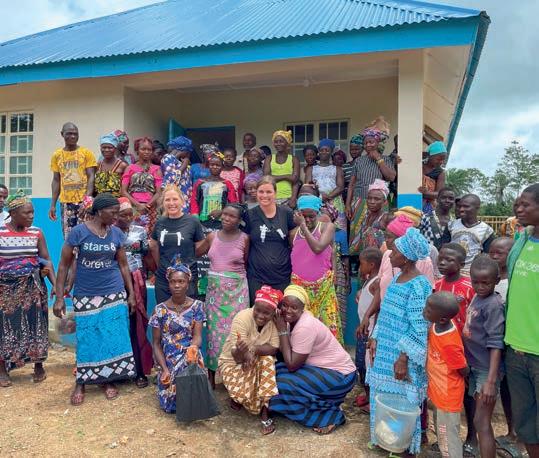

Baoma, Sierra Leone
The community members of Baoma village in southeastern Sierra Leone requested assistance from EWB-DK and our local partner, SEND-SL, to build a health post. The closest health facility is 3 hours walk away on poorly maintained dirt roads. Women in labour often tried to reach it on foot and ended up giving birth along the side of the road. Prenatal and postnatal care, vaccinations, screening, and first aid were difficult and costly to attain.
In 2021-22 the partners worked with the community to design and construct a health post for Baoma. The site now includes a delivery room, a
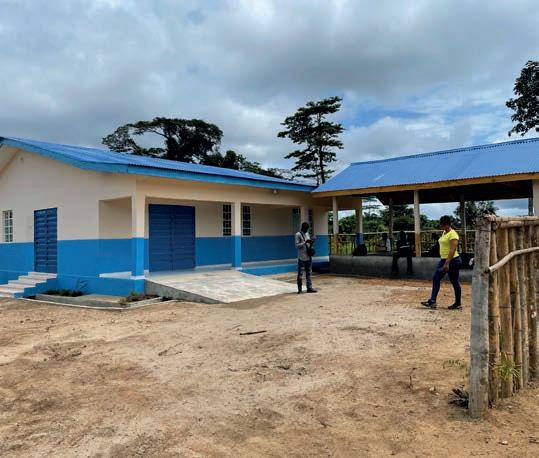
postnatal/recovery room, an examination room, six toilets, sinks, a waste/ incinerator zone, a hand-dug well and elevated water tank, and a solar energy system. Although not a part of the original building plan, the community took it upon itself to build a staff quarter building and a covered waiting area and to cultivate crops on the site. The district health authorities were so impressed with the site’s quality that they decided to include it in the public health system as an official Maternal and Child Health Post. Therefore, the public system will provide health care services, while the community will own and operate the health post.
I feel very privileged to volunteer for EWB-DK. The positives are multilayered. In Denmark, I network with other members, the secretariat staff, the board, and visitors, learning from this diverse group of talented people. In Sierra Leone, I support and work with an amazing group of professionals who are dedicated to improving lives and strengthening society from the ground up. And in our project communities, I get the opportunity to help kind, hardworking people who are so grateful for our assistance.
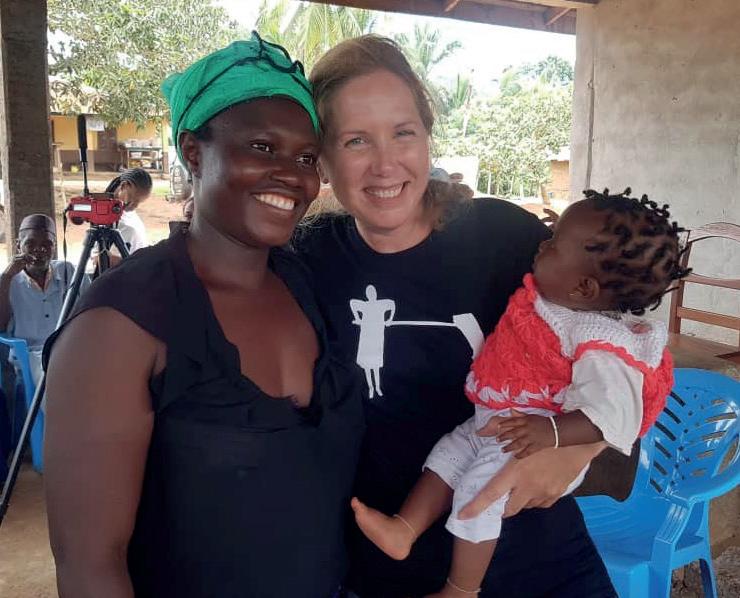
At EWB-DK, I can strengthen my project management skills while using my competencies and ideas to help some of the world’s most vulnerable people. It’s incredibly rewarding on a professional and a personal level. I would recommend it to anyone – engineers and non-engineers alike.
The project also enabled SEND-SL to work with the community to set up 16 health savings groups, allowing hundreds of group members and their families to save money for health emergencies for the first time. The groups have already saved lives, allowing people to procure medical care when necessary and decreasing the negative impacts of poverty on health.
Partner: SEND-SL
Donors: CISU, Bygma, Rønslev, RW Jorck, Niras, NNE, Spejdernes Genbrug, The Velux Foundation, Region Hovedstaden
Positive impacted 7,000 persons
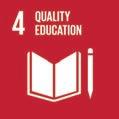
Education is the future for the counties we work in. Therefore EWB-DK supports the school system in developing countries by securing access to quality education by renovating existing struc-
tures, constructing new school buildings, providing access to electricity, securing sanitary facilities and providing accessibility for people living with disability. We also support the schools’ skills and management with training and the

organisation of students and parents in management structures. The projects contribute directly to SDG 4 to secure inclusive and equitable quality education and promote lifelong learning opportunities for everybody.
For years, over 100 students at different grade levels have had to share a single room in the small school in the village of Vaahun, Kenema, Sierra Leone. The reality will be completely different for the students when the new school building is finished. In addition to creating a safe learning environment, the project includes water installations and solar cells, ensuring clean water and electricity for the school and the local community.
The main objective is to improve access to basic education, including improving education quality. Additionally, the school is expected to accept an equal number of boys and girls and
thereby contribute to achieving the gender equality goal. The new school will have six classrooms, a computer room, a library, two toilet buildings, and a teacher’s room.
There will be a focus on sustainability throughout the project and to make the project replicable. The sustainable approach emphasises that the users learn how to run the schools socially, financially, and technically. To secure the maximum level of community ownership and engagement, two volunteer architects from EWB-DK visited Vaahun to assess the conditions and discuss the future school’s design with the parties
I was elected to EWB-DK’s board in May 2022. My background is an education as a civil engineer from Chalmers Tekniska Högskola in Gothenburg and a long and fruitful working life in the construction industry, which has given me so much in many areas.
Therefore, I want to pass on some of the knowledge and experience I have gained over time to those who have the most difficulties and can benefit from it.
Per Semmling, Member of EWB-DK’s Board, Chairman of the Project Support Group (PSG)


involved. The EWB-DK team subsequently designed a school based on the community’s specific wishes, considering establishing a safe and healthy school environment for future pupils. It has long been a great wish for the village to have a new school, and on their own initiative, they have cast the bricks for the building themselves. The construction of the school is set to begin in early 2023.
Partners: SEND SL
Donors: CISU, NNE, Erik Thunes
Legat, Bygma Fonden, Marie og
M.B. Richers Fond
Positive impacted 525 persons
Since 2019 EWB-DK has collaborated with the small Danish NGO “100% for the Children” in the planning, design, and execution of a new school building. The school in Pebi, a small fishing community on the coast of Central Ghana, must fulfil national standards to receive state subsidies to cover the teacher salaries and the school’s operation. In 2022, EWB-DK has been working to complete the structure through a local contract. In
October 2022, the EWB-DK team went on a handover mission to do the final building inspection. However, as the contractor did not finish in time, the project was not finished until late 2022. Community ownership and engagement is vital when erecting a local school. Hence, a community workshop was conducted to engage the parents to include them in the project and encourage them to help maintain and support the school in
the future. At the same time, the National Schools Inspectorate Authority paid the school an inspection visit to grant future government subsidies. The school children are already excited about their new school.
Partner: 100% for the Children
Donor: Ramboll Foundation
Positive impacted 100 persons
In collaboration with Opportunity Training Center (OTC), a technical skills training centre in Kenema, EWBDK continues the collaboration with a strong focus on advocacy for rights for people living with physical impairments in Sierra Leone, and outreach to rural communities in Kenema District.


2022 has been a very busy year for OTC, with many important activities. OTC has conducted massive outreach sessions by gathering several communities for awareness raising and conducted numerous radio talks about disabilities and discussions on how the civil society in Sierra Leone can ensure proper inclusion of impaired people. Furthermore, OTC has strengthened its organisational structures by working on the board structure, setting up the different departments within OTC, and strengthening the financial sustainability by facilitating business management training to students and teachers.
As part of the project, OTC has been
running the “Young Leaders Programme”, where students with leadership potential from OTC and other disability organisations in Kenema attend different workshops to advance their skills. The topics cover everything from leadership training and management skills to self-esteem and counselling. The program is a huge success, and the participants
are showing great improvement in becoming strong advocates for equal rights for people with disabilities in Sierra Leone.
Partner: Opportunity Training Centre (OTC)
Donors: CISU, ARUP & partners, and private donations
Positive impacted 110 persons
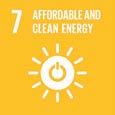
Universal access to energy, increased energy efficiency, and using renewable energy are essential to create sustainable and inclusive societies, economic development, and resilience to envi-
ronmental challenges such as climate change. EWB-DK’s sustainable energy projects contribute to solutions that ensure a stable electricity supply to small communities and contribute to the development of local commu-
nities. The systems are either used in schools and health clinics or for charging gadgets or mobile phones as a business model.
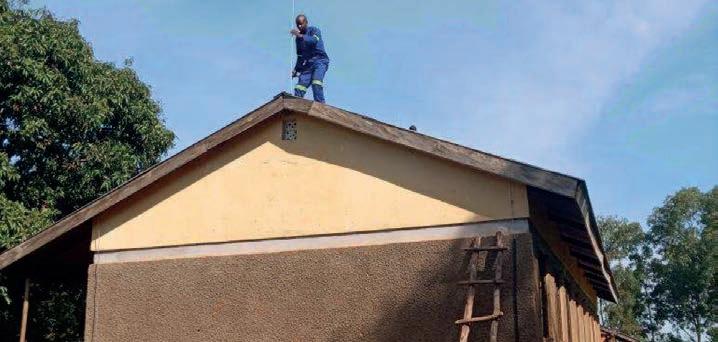
In 2018, lightning struck the Mongoyo Primary School compound in a far north-western corner of Uganda, killing three children and sending over 70 to the hospital. Since then, there has been an immediate need for lightning protection at the school buildings to protect the students and teachers, where currently 900 pupils attend.
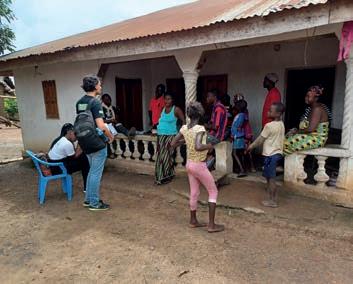
In close collaboration with the African Centres for Lightning and Electromagnetics Network (ACLENet), EWB-DK has successfully designed and installed a Lightning Protection System (LPS) on the six classroom buildings, an LPS for the teachers’ inhabitation area and the nearby church – a total of 11 buildings – and a lightning mast has been installed to complete the project. The build-
ings are now protected with a system comprising lightning rods on the roof, down conductors on the ceilings and walls, and earth ring electrodes surrounding each building.
Finally, the parents, pupils, and staff have been educated in safety to understand the capabilities of the LPS
and to enable them to maintain the system. The outcome is that the students, teachers, and their families can now be safe from the risk of lightning injury.
Partner: ACLENet
Donors: Polytech
Positive impacted 1,000 persons
Kenema, Sierra Leone
Together with our local partner SEND SL and local communities, EWB-DK has designed a tool for assessing needs, opportunities, and implications regarding community solar energy supply so that communities can make an informed choice when selecting the optimal system.
The tool contains methods for assessing the context, market for electricity, location and land, equipment, building, engineering and technology, safety, organisation and management, human resources, and financial sustainability. The various assessments show how a conclusion and recommendation for investing in an energy system can be made, enabling a community, together with a poten-
tial investor, to decide on an informed basis.
The tool is designed to be used by SEND SL, other NGOs or private businesses wishing to invest in community solar or other energy systems in communities. The issues are valid for any investment consideration in community energy systems in Sierra Leone.
Three villages in Kenema district are used as a case for illustrative purposes. In Mendekelema, the conclusion was that investing in a solar energy system is viable if a solar energy hub is established, supplying electricity through households renting rechargeable gadgets (e.g. lanterns, phone charging) and through produc-
tive energy use by micro enterprises.
Read the tool manual here: iug.dk/vaerktoejskasse-og-guides
Partner: SEND-SL
Donor: CISU
Positive impacted 20 persons
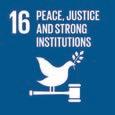
Building strong local institutions and partnerships is fundamental to all EWBDK’s projects. In its local initiatives and projects, EWBDK focuses on strengthening transparency and civil society’s involvement in providing public services under SDG 16. We have a special focus on local mobilisation and capacity building, integrating private sector and
educational institutions, and developing methods and innovation across the technical and humanitarian efforts, including strengthening active citizenship, which is part of all projects. We see civil society as a huge resource with a waste potential to be a significant actor in the solutions to the basic challenges facing many communities in the countries, we work in.
In 2022, The Parliament of Sierra Leone adopted a new land reform on land rights and nationwide land mapping. The Reform will give ownership of lands to lineage land-owning families instead of traditional chiefs, create national and regional land governance institutions and provide for conducting a cadastre of all lands in the country. It is a large and time-consuming job to survey the entire country and a challenge in remote areas. Therefore, our partner Green Scenery has approached EWB-DK to introduce new technologies in surveying land plots using drones. In this context, EWBDK has been working closely with the University of Southern Denmark (SDU). The expectation was that the survey could be carried out more efficiently and thus at lower costs. This is known in the surveying industry, but
the feasibility has not yet been proven in the Sierra Leone context.
Together with Green Scenery, EWBDK went to the Kalangba Village in the Port Loko District. Here two-family land plots were surveyed with a drone, and the maps were handed over to the owners after calculations were completed. The results, pros, and cons were presented in the Ministry. The results were well received, and it is expected that surveys using drones will be included as a methodology in the coming legislation, the surveyors land act.
EWB-DK also held a workshop at the Fourah Bay University with participation and big interest from 60+ students who were introduced to drones and, from a circular approach,
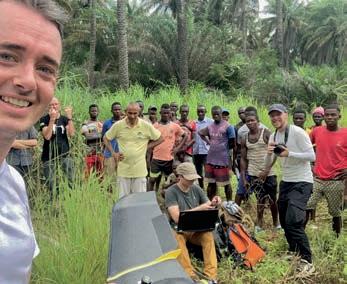
built their own drone prototypes. The initiative was arranged through students at the university and was highly successful in raising awareness and interest in using new technology in development projects.
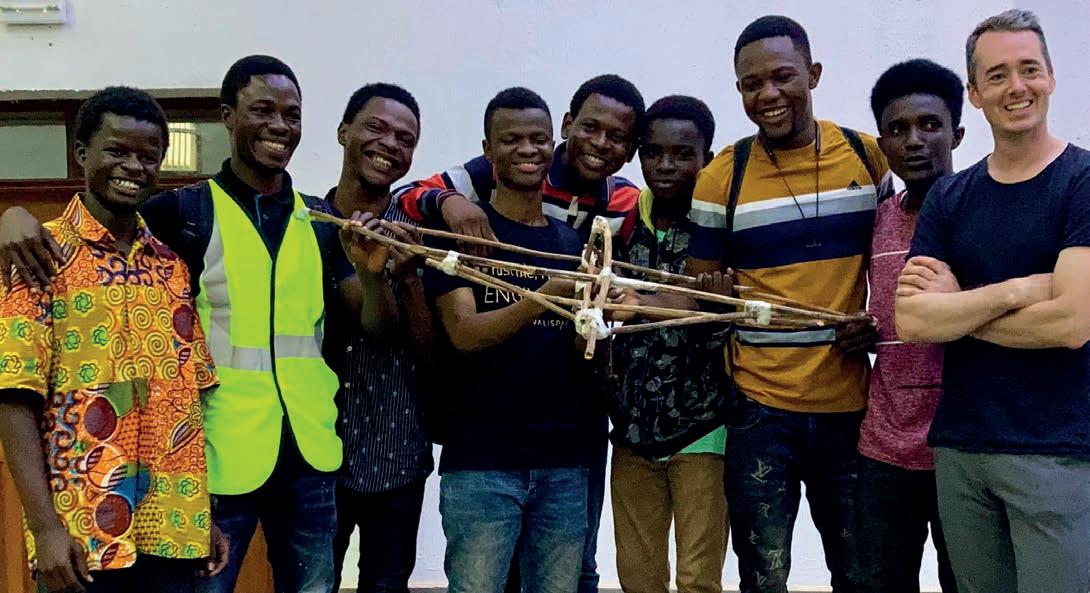
Partner: Green Scenery
Doners: CISU, SDU, COWI
Positive impacted 60 persons
Benin
In the Southern part of Benin, a subterranean town was rediscovered in 1998 during a construction project. The underground town is believed to date back to a kingdom in the late 16th or early 17thcentury and has been designated a UNESCO World Heritage site after the discovery. Today the site is transformed into a public archaeological park and has become the third largest tourist attraction in the country.
However, the site and buildings have not been maintained properly
and have for several years been in disrepair, which led the authorities to commission an assessment of the state. The Government of Benin has asked the Danish archaeologists who have been active at the location to develop a renovation project.
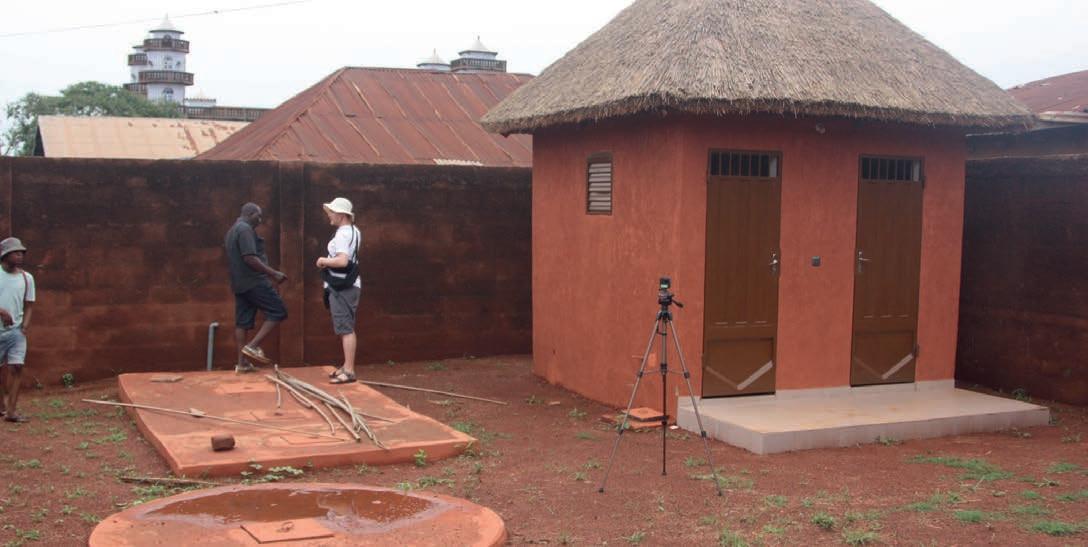
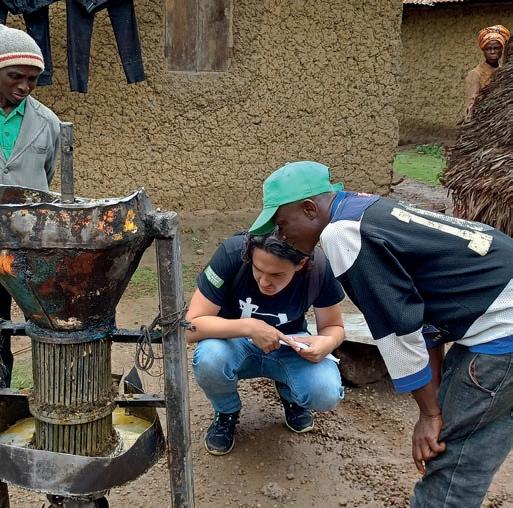
In this connection, the Danish BDArch reached out to EWB-DK for support. The authorities have requested that engineering expertise be brought in for new constructions, covering the caves,
“Working with Engineers Without Borders gives you a chance to make a significant impact on people’s lives in some of the world’s poorest regions. In a single project, you might be able to establish hospital facilities or electricity supply for many people who have never had access to these basic human rights before. It’s an inspiring feeling to know that you have the potential to provide them with resources and opportunities they’ve never previously been given.
Additionally, the project type challenges your theoretical knowledge and forces you to be practical. A lot of the work is interdisciplinary, so you gain a good understanding of all development project facets. As long as you have the initiative and time to spare, there is a task for you somewhere in the organisation.”

renovating other smaller buildings, establishing solutions for sustainable power supply and draining the external areas. Together with the archaeologists and architects, EWB-DK has inspected the present conditions of the park structures to assess which renovation and restoration is needed. EWB-DK hope to participate in the possible Phase 2, being the future renovation works to the park.
Partners: BDArch
Donors: Government of Benin/ EU
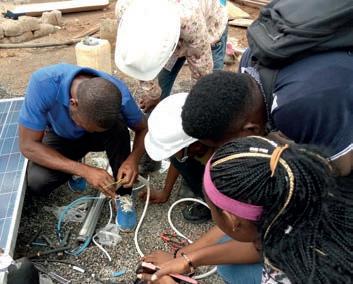
Zimbabwe
Following 1.5-year communication with the National University of Science and Technology (NUST) and Lupane State University (LSU) in Zimbabwe, a physical visit finally became possible in August 2022 with EWB–Norway.
The main goal of the visit was to get better mutually acquainted with each other and to pave the road for a future, long-term cooperation for projects supporting the SDGs. During previous projects with the renovation of rural schools in Zimbabwe, EWBDK has realised a need for capacity

building of local NGOs by establishing a new EWB-ZW closely linked with NUST and LSU, but as an independent NGO. This may enable a longer-term partnership for providing such capacity building.
All partners have agreed on how such cooperation should take place, and there is a mutual interest in defining practical projects for implementation. The themes: WASH in rural communities, waste management, including plastic recycling/reuse, and improving energy efficiency in agricultural pro -
duce processing, respectively, have been identified. The visit also served as a scoping mission for a WASH project for rural schools in Lupane District. Five different schools were visited, which gave a good impression of the needs prioritised by the schools and local communities and allowed for identifying some potential solutions and changes in approaches to water management.
Partners: NUST, LSU, EWB-NO
Donor: CISU
Positive impacted 11,000 persons
Sierra Leone
EWB-DK and the Association of Nordic Engineers (ANE) collaborate with the Sierra Leone Institution of Engineers (S.L.I.E) to expand the institution’s capacity to become a relevant and influential voice in the national agenda on implementing the SDGs. Therefore, a team of project employees and a project manager have been employed at S.L.I.E to advocate for engineers’ role in sustainable development, raise awareness of S.L.I.E, and increase the number of members. During the project, three regional seminars were implemented. The aim was to involve the membership base and to “harvest” input to the organisation’s future strategy.
Also, awareness of the activities and the students’ engagement in sustainable development projects locally has been raised through radio spots, newsletters, and SoMe campaigns. As a part of the project, the partner SLIE and EWB-DK launched a water supply project in Grafton’s slum areas in which 20 local engineering students had practical introduction to sustainable engineering in practice and formed part of the local technical project team from the first conceptualisation of the water supply system to the last day celebrating the hand over to the community of Grafton.
Partner: Sierra Leone Institution of Engineers (S.L.I.E)
Donors: Association of Nordic Engineers (ANE), CISU, and private donations
Positive impacted 200 persons
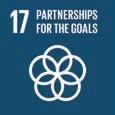
EWB-DK’s projects exist because of strong partnerships. Therefore, our work has a targeted focus on building strong partnerships with civil society organisations and ed-
ucational institutions in the Global South and partners in Denmark (companies, universities, and NGOs) and contributes to strengthen global partnerships for sustainable development under SDG 17. The work
involves developing, transferring, and disseminating technological solutions to create better conditions in developing countries and encourage and promote effective public and civil society partnerships.
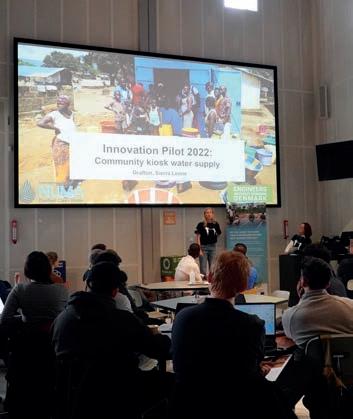
EWB-DK experiences a significant interest from potential new members, and we receive between 150-170 new members on an average each year. The interest places an important obligation in our organisation to onboard and welcome the new active members well and make sure that joining EWB-DK can be done easily. During the past two years, EWB-DK strategically developed new tools to onboard new members into the organisation and create a solid platform to volunteer from. The initiative has also focused on how we can reach out and collaborate with universities and companies - with a very positive result.
In this context, EWB-DK has been working closely with the University of Southern Denmark (SDU) and Technical University of Denmark (DTU) to create awareness among the students and spread knowledge of technical development work in the Global South. EWB-DK invited two engineering students and a project
manager from Sierra Leone to Denmark. The three guests all worked to establish a water kiosk in Freetown, and on the Innovation Pilot course at DTU, they had the opportunity to pitch the project to the students. During the course’s three weeks, they met and collaborated with the students on concrete issues with the water supply in Sierra Leone. In addition, they visited several companies and educational institutions. The visits and the experience exchange were a great success for the visitors and the hosts.
The cooperation with the universities has underlined the strong potential for university students to engage directly in EWB DK’s technical and humanitarian platform to use it as a basis for student assignments, which has led to the creation of a “Project Bank” from where students can harvest inspiration and information to work within their study with the global sustainable development goals. Furthermore, we have a strategic
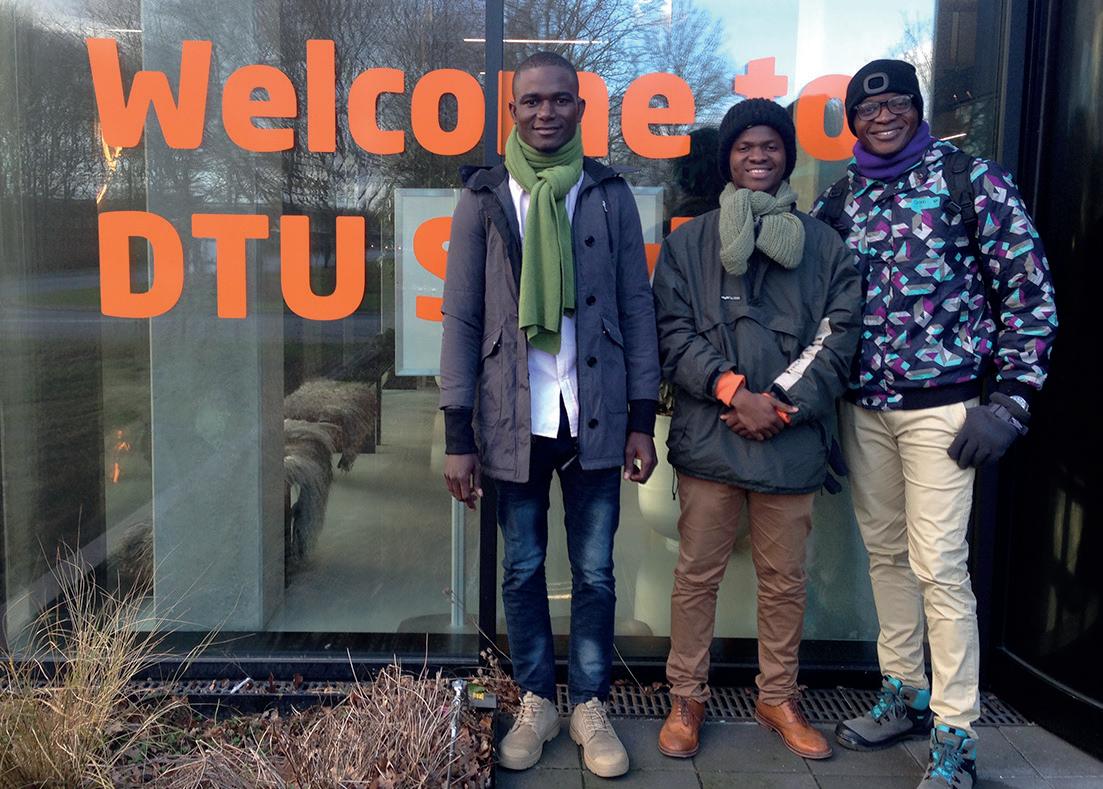
goal to make the value of volunteers’ humanitarian work visible to new target groups. In this regard, EWB-DK has engaged in numerous corporate dialogues and visits and produced information materials which can inspire staff from Danish companies to get involved in EWB-DK’s projects.

Partners: DTU and SDU
Donors: CISU and Private donations
EWB-DK has many years of experience in collaborating with various partner organisations in Sierra Leone. But not until 2022 have all seven partners been together. It took place at a two-day, fruitful, and dynamic partnership workshop in Freetown.
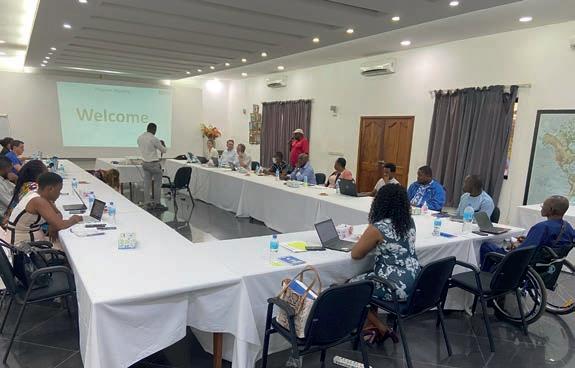
The meeting was highly requested by the partner organisations to review and discuss the cooperation, the lessons learned, areas of potential improvement, and how synergies and
support can potentially be strengthened in ongoing and through new interventions.
The session provided a unique opportunity to embrace the opportunity to enhance cooperation among the local partners, reflect on joint learning and reflect with EWB-DK on the experience of having international partners. The partner meeting was highly successful and ended with the wish for further gatherings. The thematic touches besides part-
nership were related to WASH, climate change and environment, as the partners envisage that by drawing on each other’s expertise and networks, they can expand operations to new areas.
The workshop was a great success and provided the space and opportunity for all the participants to jointly reflect, discuss and propose ways to strengthen and improve communication, engagement, and cooperation.
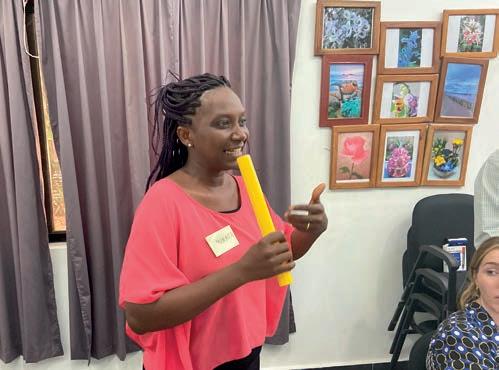
The Danish consultant Rasmus Visby from Visby.dk was responsible for facilitating the two-day partnership workshop.
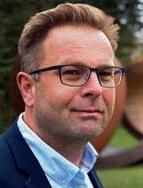
Rasmus has broad organisational experience and insight into well-functioning stakeholder processes. By using facilitating methods new to the partners, he positively pushed them into new rooms of reflection and successfully created mutual trust and confidence between the organisations. He presented different facilitating methods that were new to the local participants, which opened knowledge sharing and experience exchange between the participants, which turned out to be a success. Hence, the seminar not only turned out to be an engagement between partners and sharing of knowledge on projects - it
also developed into learning of new methods of facilitation.
EWB-DK asked Rasmus Visby to point out three well-functioning process methods used.
• Speed dating between everyone
“The seminar was not just about the collaboration with EWB-DK but also with a broader focus. Among other things, we did a speed dating session between all the participating organisations. Everyone talked to everyone for 20 minutes about collaboration opportunities and shared experiences cooperating with EWB-DK. It was rewarding and strengthened the relationships between the participating organisations. Everyone felt they had valuable points. Wonderful.”
• Break the ice with metaphors
“To achieve an open conversation about collaboration and experiences, I brought 120 pictures which were
scattered around the room. The participants used the pictures metaphorically to illustrate a point about collaboration. The result was a firework of relevant input, where everyone spoke equally, laughed at funny metaphors, and acknowledged each other. The constructive atmosphere followed us for the rest of the seminar.” Rasmus ended up giving his 120 picture cards to one of the participating partners, and they are now supporting local processes.
• Facilitation and reflective space
“I chose to use techniques I know from facilitating employee and citizen meetings. I made sure that there were dynamic shifts between the participants talking. Furthermore, we created a space where decisions were not made quickly. We wrote down points and keywords along the way. Thus, we created a reflective space that ensured broad ownership of the agreements made on the last day.”
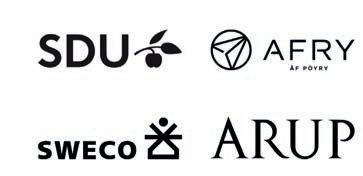
EWB-DK’s corporate members’ engagement in our activities is often motivated by a desire to explore how their employees, core business areas, and expert technical knowledge can be applied and provide value in our projects.
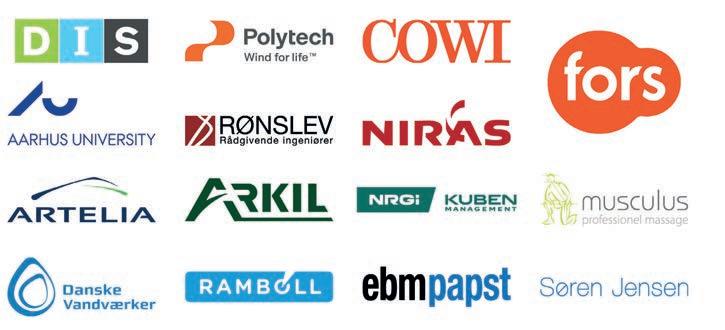
Corporate memberships provide us with unique access to stateof-the-art technical knowledge, which we can use to strengthen our technical and humanitarian activities and benefit the world’s poorest. In recent years, the considerable synergy potential between corporate Denmark and EWB-DK’s mission has become evident and exemplified in actual project initiatives. With a closer relationship between Danish corporations and their employees on one side and local NGOs and beneficiaries on the
other, we can create an even more lasting commitment and a clearer understanding of the huge contribution that can be made from a Danish corporate platform.
We are experiencing significant interest from small and large Danish companies and educational institutions interested in collaborating. In early summer, DIS organised a hackathon for their 500 employees, who spent a whole day providing their input for solution models for various EWB-DK cases. In addition, we had another waterworks (Bremdal waterworks) donated by Struer Forsyning, and the donated waterworks (Aagerup waterworks) from FORS reached Sierra Leone, where it will be established.
EWB-DK also felt the great interest in February when two
engineering students and a project manager from Sierra Leone were visiting Denmark. They were invited in connection with the Innovation Pilot course at DTU, where they collaborated with the students. In addition, they visited several companies and educational institutions, and it was admirable to experience the great support and interest from the Danish workplaces, who had much to discuss with our guests.
In 2022 new corporate members strengthened us even further, allowing us to deliver even better results for our communities and partners. We were delighted to welcome Artelia (former MOE), Emendo and AFRY. All the companies and their employees have actively engaged in EWBDK’s projects.

Enthusiastic staff at Emendo Consulting Group was the front runners in establishing a partnership between the company and EWB-DK. In 2022, the corporate membership kicked off with staff from Emendo Improvement taking a deep dive into the reality of poor tea farmers in Zimbabwe and hence contributing their knowledge and experience within technical processes and production solutions to help small-scale tea growers to get better products and hence income as a way out of poverty by starting a tea production.
Anders Arnum Jensen, the Managing Partner at Emendo Group, says about the new partnership:

”We are excited that our consultants will be contributing work hours and their skills to such a great cause. A big part of the Emendo vision has always been to ensure we give back, and the cooperation with EWB-DK is an ideal way to do so.”
Together with their colleagues and volunteers from EWB-DK, the Emendo consultants will advise on technical, business, and administrative aspects, help in building a sustainable tea production and assist
the local association in Zimbabwe in developing their organisational structure so that they may independently conduct business outside of international producers.
Rønslev has always been a company with clear values. They want to be an active and agile partner in their building projects, where they try to make things easier, not harder. Buildability is key. In the same way, they want to be a positive contribution to the community, locally and globally. No matter how small the impact is, it should always make the world better, not worse.
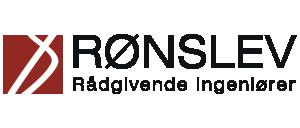
Founder Kasper Rønslev says: “We tried to formulate all our values in one line and ended up with “part of the solution”. Right after we formulated this, all kinds of ways to be a part of the solution emerged. One was EWB-DK. We already knew about EWB-DK from our employees’ personal memberships, and we decided to commit as a company, with a membership
and by participation in projects. Besides being a part of the global solution and adding positive value to developing countries, it is a good opportunity for our employees. We don’t usually have projects abroad, but through EWB-DK, we can offer this experience.”
Structural engineer Sanne Hjorth was a part of the project of constructing a health clinic in the village Baoma, Sierra Leone, and she says:
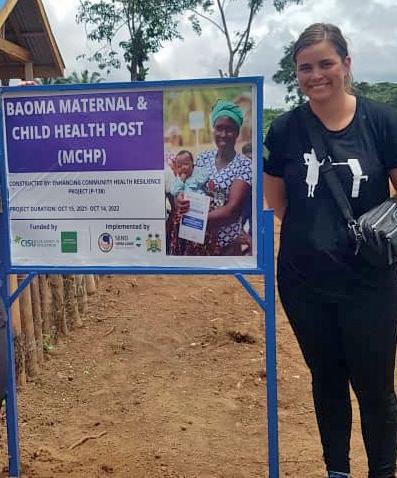

“At first, I signed up for the adventure. I thought it was a good opportunity to go to Africa and see that part of the world. But when I was there to hand over the finished project, it really struck me how much it meant to the local community. I reflected on my own privileged life and felt I was doing
something right and important. I was paying forward, and it was a lifetime experience on many levels.”
Read about the project on page 11.
Since 2019, two Artelia engineers have been working on the design, planning and executing a new school building in Pebi, Ghana. In fall 2022, they were on the last mission in Ghana, where the school was almost finished. They could already see the great joy it has brought to the children, the teachers, and the local community. After the exciting experience, they came home and talked vividly about the project. This commitment has been the inspiration
for a professional collaboration between Artelia and EWB-DK (see page 12).

When concluding the collaboration, Christian Listov-Saabye, CEO at Artelia, stated:
“We believe that a collaboration with EWB-DK is well in line with our values and strategy to contribute to a more sustainable social development. Through our parent company Artelia’s foundation -
Artelia Foundation and EWB-DK, our employees can contribute with their expertise and create sustainable, technical solutions out in the world. Our EWB-DK membership also helps to develop MOE as a workplace and provides some exciting opportunities for our employees.”
Artelia (former MOE) is among Denmark’s largest consulting engineering companies, employing more than 1,100 employees.
200,000 DKK and above Civil Society in Development (CISU)
Ramboll Foundation
Erik Thunes Legat

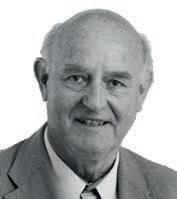

Fonden af 17-12-1981
Asta og Jul P Justesens fond
50,000 – 200,000 DKK
Marie & M.B. Richters Fond
Reinholdt W Jorks Fond
Det Saxild’ske Familiefond
Spejdernes Genbrug
Fonden af d. 24. december 2008
Civilingeniør H C Bechgaard Og
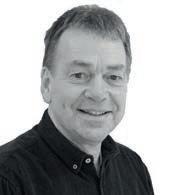
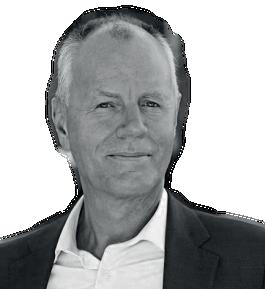
Hustru Ella Mary Bechgaards Fond


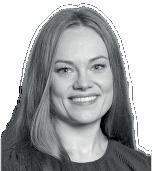
Jubilæumsfonden af 12/8 1973
5,000 – 50,000 DKK
Genbrug til Syd
WSP Danmark
Foss Analytical A/S
Niras A/S
NNE (Novo Nordisk Engineering)
Additionally, we would like to extend our sincere gratitude and appreciation to all private persons for their donations.
Administration accounts for 11% of our revenue in 2022 (8% in 2021). However, if we include the estimated* value of volunteer activities from project groups and volunteers on mission, the administration is at 3% in 2022 (3% in 2021).
*Estimate based on a survey amongst volunteers and average hourly fee including overhead based on DANIDA standards.

1,510 members
23,400 hours volunteered
93,073 people impacted
5,5 mil DKK in donations
180 active members


443 days on mission in local communities
5,3 mil DKK in project expenses
Trykt af Stenby Tryk A/Spå klimakompenseret, PEFC og FSC godkendt papir der støtter Plan Vivo.